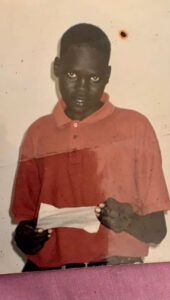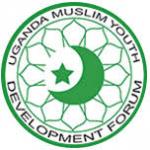Dr.Arik's Story
Dr.Arik's childhood

Mawien Martin (M) Mawien Arik was born in a grass-thatched hut in Lou Ariik village, North Tonj county, in South Sudan. Like most women in the area, his mother gave birth with help from a traditional birth attendant. Since no birth and medical records , it is estimated that he was born in November 1987 based on events that transpired. When he was a small child, he remembers a medical team from the Carter Center vaccinating him against polio. The Carter Center team also distributed water filter straws in the area to prevent the spread of Guinea worms.
The many tribes of South Sudan base their culture and wealth in the cattle they raise. The paramount activity of a young boy is to herd his cattle to green pastures, and protect them from cattle rustlers. For generations there has been tribal conflict between the Nuer and Dinka tribes over pasture and access to watering holes for the cattle. When Arik was three or four years old, he witnessed this conflict in a very personal way when Nuer raiders/attackers set fire to his home, killing his mother and two brothers.
Following the attack in 1993, the people of the Lou Ariik area were forced from their villages by tribal war. Armed attackers uprooted almost every family and looted and burned their homes to ashes. People who survived the attacks were left with nothing, and many starved to death. People fled to safer hideouts. They left emptyhanded, with heavy hearts and little hope.
Return to the Village
A year later, a few families returned to Lou Ariik village, led by Arik’s father, Toby Mawien. Toby Mawien was popularly known as Akougook. He was unusual in that he could see the value of education. He was fond of saying, “Every better change begins with education. It is time that our children go to school for a better life.”
 The late Toby Mawien
The late Toby Mawien
Soon after Toby Mawien led the people of Lou Ariik back to their homeland he established “The Under -the -Tree” primary schools in Lou-Ariik and surrounding villages. He took his son Arik away from the traditional path of a Dinka boy, and enrolled him in school under the Tamarind tree in Lou Ariik village. Arik finished primary school in Lou Ariik village, and later secondary school in Kampala, Uganda, and then went on to obtain nursing degree.
University

In 2011, after Arik received his Nursing degree from Clarke International University in Kampala, he volunteered with an American-Australian maternal and child hospital in Yei (Bet Eman), South Sudan, and gained experience delivering babies and taking care of their mothers. He later became the clinical nurse-in-charge of the Medecines Sans Frontier cholera treatment center in Juba, South Sudan. He then transferred to the maternity ward of the Medecines Sans Frontieres Primary Health Center in Gogrial, South Sudan.
When Arik received a tuition grant from the Wells Mountain Initiative he could afford to go to medical school. He received his bachelor’s degree in Medicine and Surgery from Makerere University in 2017.
Turning Point

Before Arik graduated, he had a life-changing experience. In his final year of medical training at Makerere University, he travelled back to his home country of South Sudan to do elective rotations in the teaching hospital at Juba. During this time “tribal war” between the President (Dinka tribe) and Vice president (Nuer tribe) broke out, while saving lives of the casualties trickling in to the hospital, patients and health workers from his own Dinka tribe speaks to him in local dialect discouraging him from helping patients from other tribes. This level of hatred that exists between tribes and ethnic groups in South Sudan was very uncomfortable and disturbed Arik to his core
During this time “tribal war” between the President (Dinka tribe) and Vice president (Nuer tribe) broke out, while saving lives of the casualties trickling in to the hospital, patients and health workers from his own Dinka tribe speaks to him in local dialect discouraging him from helping patients from other tribes.
In response to this senseless hatred spreading inequality in health care, Arik applied to and was accepted by the United States Institute of Peace for training in non-violent conflict management and peace building. He became a Generational Change Fellow of the United States Institute of Peace in 2017, and later a Medal Washington Fellow a flagship program of Young African Leaders Initiative.
"Charity begins at Home"

He returned to his home village of Lou Ariik where he first renovated the abandoned only medical facility established in 2005 by Bol Mawien with the help of his father Toby Mawien.
Following the acquisition of knowledge and skills in medicine and non-violent conflict management, Dr. Arik founded Akougook Initiative , a grassroot organization to provide and advocate for inclusive health, education and peace-building services to remote villages in South Sudan within Lou Ariik Village as a pilot community
One of Dr. Arik’s foundational beliefs is that equitable healthcare bridges differences between ethnic groups and clans, and brings peace to the community. He is compelled to incorporate peace building activities into health and education services as his facility treats women and children of rival communities. He believes in health, a bridge to peace





